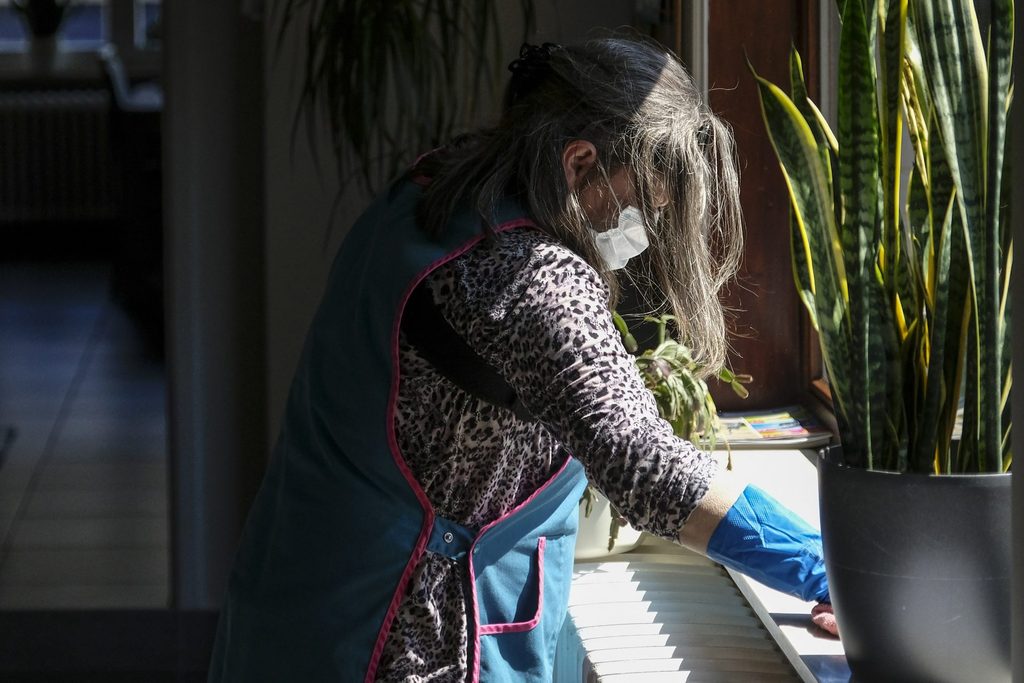Workers in the cleaning industry took to the streets of major Belgian cities on Tuesday, an initiative from trade union CSC Alimentation-Service for 'Cleaning Professionals' Day'.
Workers in the sector want to raise awareness over their difficult working conditions and low wages.
Around 200,000 people in Belgium work in the cleaning industry, such as home cleaners, commercial and school cleaners, window cleaners and caretakers.
In 2022, welfare inspectors carried out checks on 175 companies that pay using service vouchers. 9 in 10 of the companies did not comply with health rules. Additionally, domestic helpers and cleaning staff are among the three lowest-paid jobs in Belgium.
Cleaning professionals are denouncing the general feeling of disrespect from the public, with some clients having unreasonable expectations or even harassing employees. One employee in the cleaning sector told RTBF that this is particularly stark when they empty bins or clean public bathrooms. "Sometimes we get the impression that people don't respect us, that they're not paying attention."
These issues have pushed the cleaning industry to demonstrate in cities across Belgium to raise awareness of their plight.
Strenuous working conditions
In 2018, the CSC union carried out a study on the health risks of the cleaning profession: "74% of respondents indicated that they experience physical or psychological pain as a result of their work," which mostly included neckache, joint pain, stress, fatigue and insomnia. These issues were also more prominent in higher age groups.
The study also showed that "the cleaning and service voucher sectors are therefore among the top ten sectors with the most sick days" and that many were on long-term sick leave.
The document also referenced a study by Steven Ronsmans of the Department of Public Health and Primary Care at KU Leuven university which stated that "cleaning products have harmful effects on the respiratory system, including an increased risk of asthma-like and other respiratory symptoms and ailments". Yet, even with the present evidence, the cleaning sector is not officially recognised as a strenuous occupation.
Related News
- Inspections reveal disregard for health and safety of domestic cleaners
- Flanders to fully digitise service cheques: What will change?
Carine Marchand, who has been working in the sector since 2005, said that she has had multiple health issues over the years. However, none are considered work-related. "We all have the same symptoms, but we're told that it's nothing to do with our work. It's absurd," Marchand told RTBF.

